Preface
Contents
PART A
I Introduction
1. An Example from Group Theory
2. An Example from the Theory of Equivalence Relations
3. A Preliminary Analysis
4. Preview
II Syntax of First-Order Languages
1. Alphabets
2. The Alphabet of a First-Order Language
3. Terms and Formulas in First-Order Languages
4. Induction in the Calculus of Terms and in the Calculus of Formulas
5. Free Variables and Sentences
III Semantics of First-Order Languages
1. Structures and Interpretations
2. Standardization of Connectives
3. The Satisfaction Relation
4. The Consequence Relation
5. Two Lemmas on the Satisfaction Relation
6. Some Simple Formalizations
7. Some Remarks on Formalizability
8. Substitution
IV A Sequent Calculus
1. Sequent Rules
2. Structural Rules and Connective Rules
3. Derivable Connective Rules
4. Quantifier and Equality Rules
5. Further Derivable Rules and Sequents
6. Summary and Example
7. Consistency
V The Completeness Theorem
1. Henkin's Theorem
2. Satisfiability of Consistent Sets of Formulas(the Countable Case)
3. Satisfiability of Consistent Sets of Formulas(the General Case)
4. The Completeness Theorem
VI The Lowenheim-Skolem and the Compactness Theorem
1. The Lowenheim-Skolem Theorem
2. The Compactness Theorem
3. Elementary Classes
4. Elementarily Equivalent Structures
VII The Scope of First-Order Logic
1. The Notion of Formal Proof
2. Mathematics Within the Framework of First-Order Logic
3. The Zermelo-Fraenkel Axioms for Set Theory
4. Set Theory as a Basis for Mathematics
VIII Syntactic Interpretations and Normal Forms
1. Term-Reduced Formulas and Relational Symbol Sets
2. Syntactic Interpretations
3. Extensions by Definitions
4. Normal Forms
PART B
IX Extensions of First-Order Logic
1. Second-Order Logic
2. The System Lw1w
3. The System Lq
X Limitations of the Formal Method
1. Decidability and Enumerability
2. Register Machines
3. The Halting Problem for Register Machines
4. The Undecidability of First-Order Logic
5. Trahtenbrot's Theorem and the Incompleteness of Second-Order Logic
6. Theories and Decidability
7. Self-Referential Statements and Godel's Incompleteness Theorems
XI Free Models and Logic Programming
1. Herbrand's Theorem
2. Free Models and Universal Horn Formulas
3. Herbrand Structures
4. Propositional Logic
5. Propositional Resolution
6. First-Order Resolution(without Unification)
7. Logic Programming
XII An Algebraic Characterization of Elementary Equivalence
1. Finite and Partial Isomorphisms
2. Fraisse's Theorem
3. Proof of Fraisse's Theorem
4. Ehrenfeucht Games
XIII Lindstrom's Theorems
1. Logical Systems
2. Compact Regular Logical Systems
3. Lindstrom's First Theorem
4. Lindstrom's Second Theorem
References
Symbol Index
Subject Index
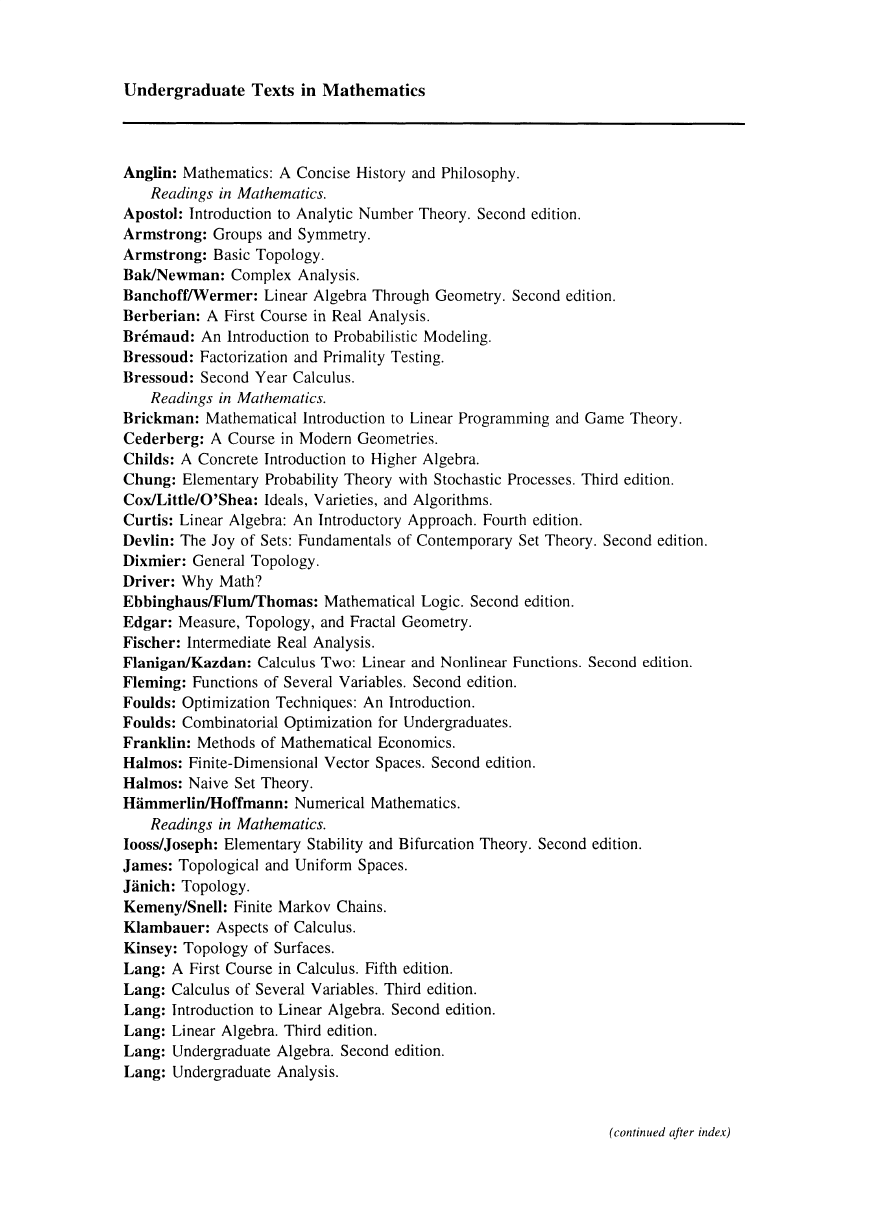
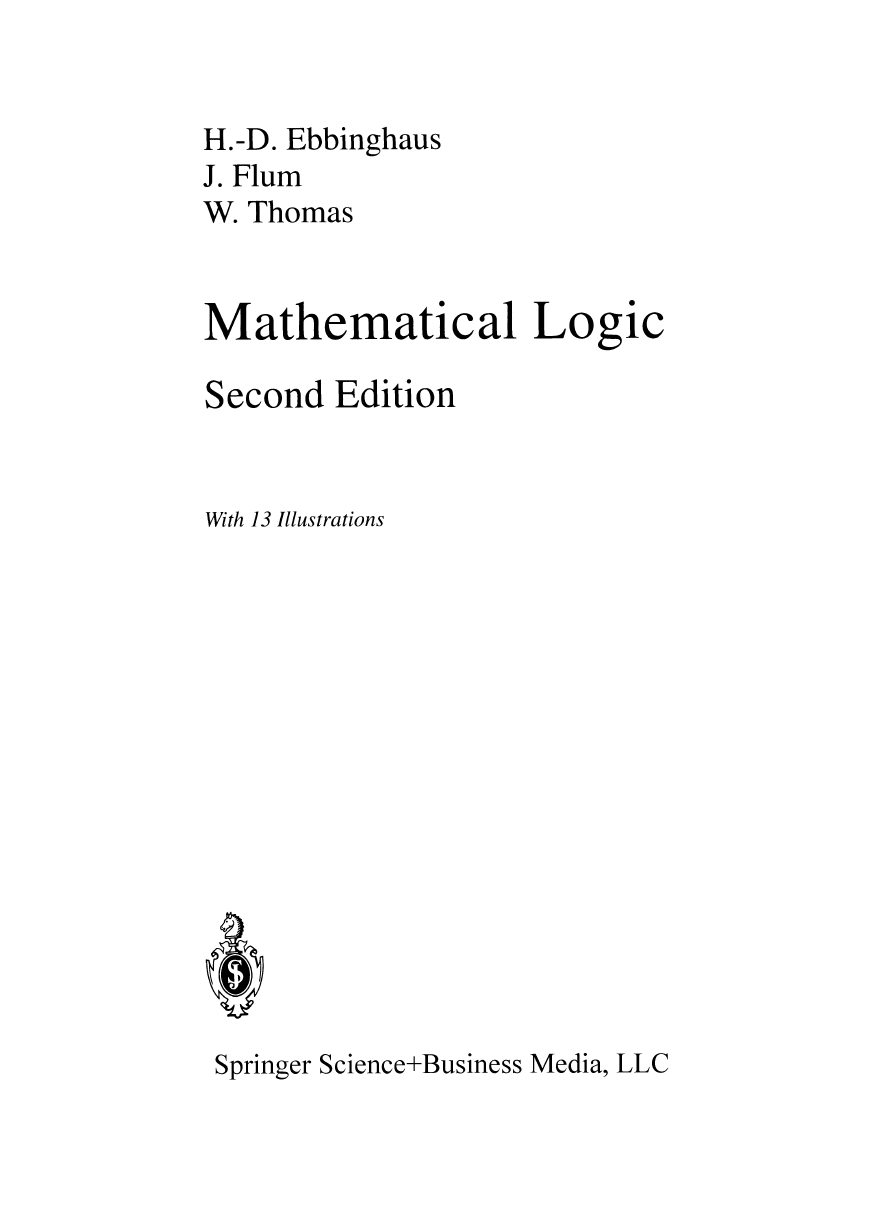
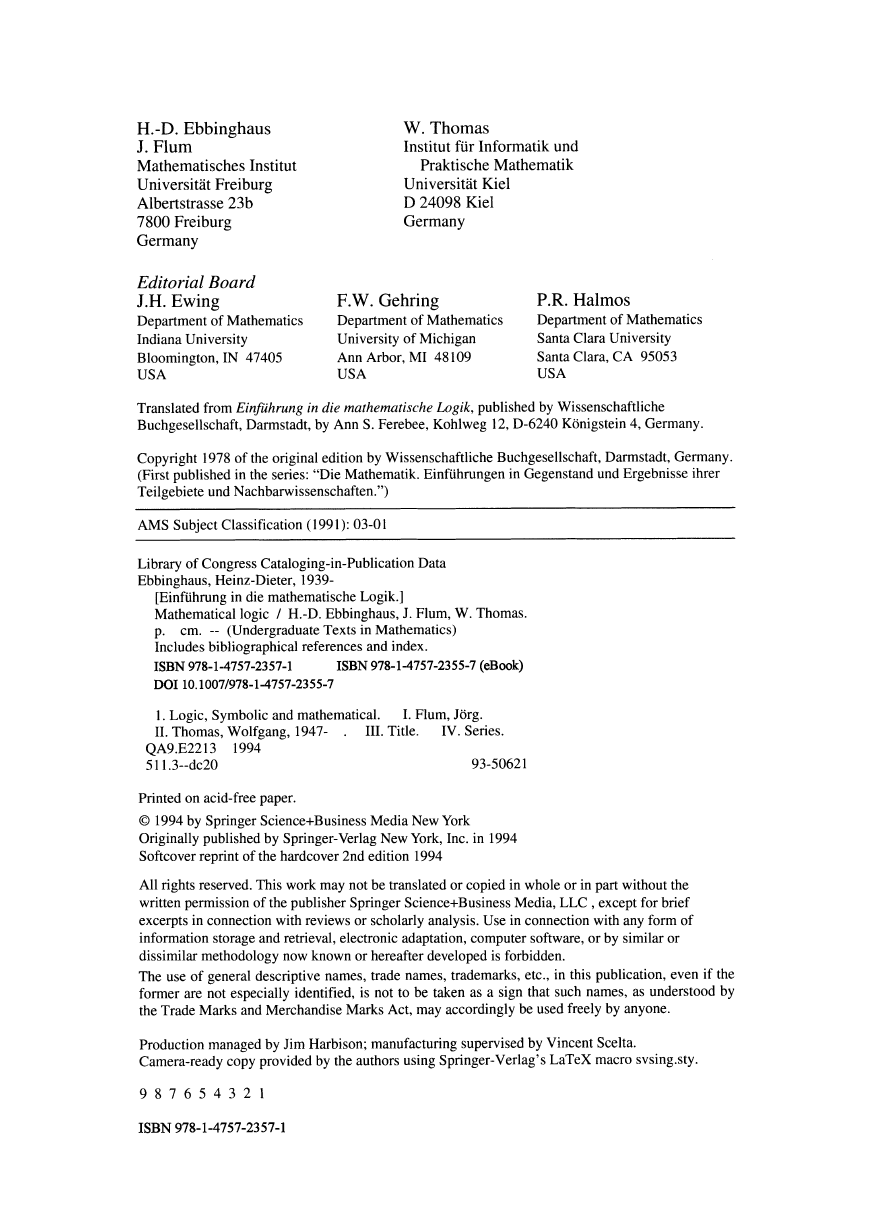
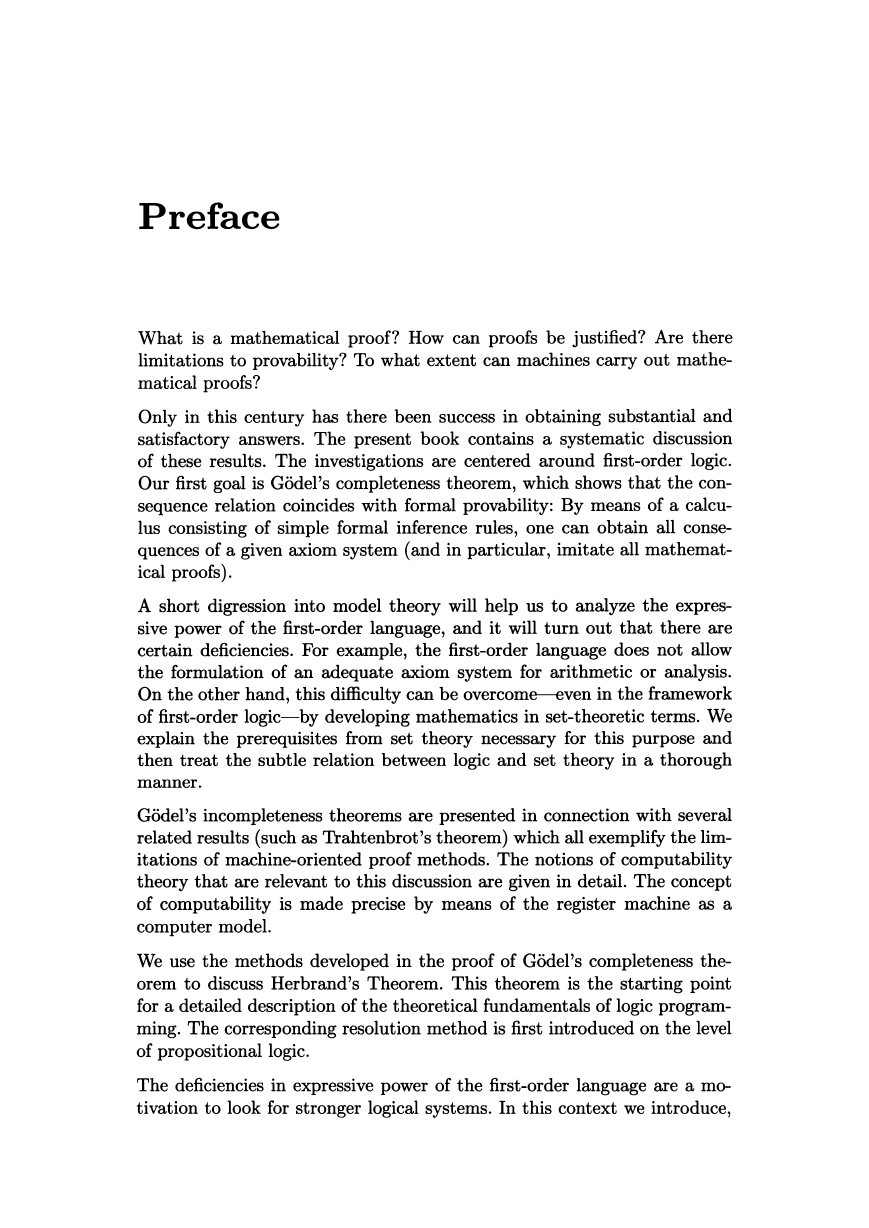
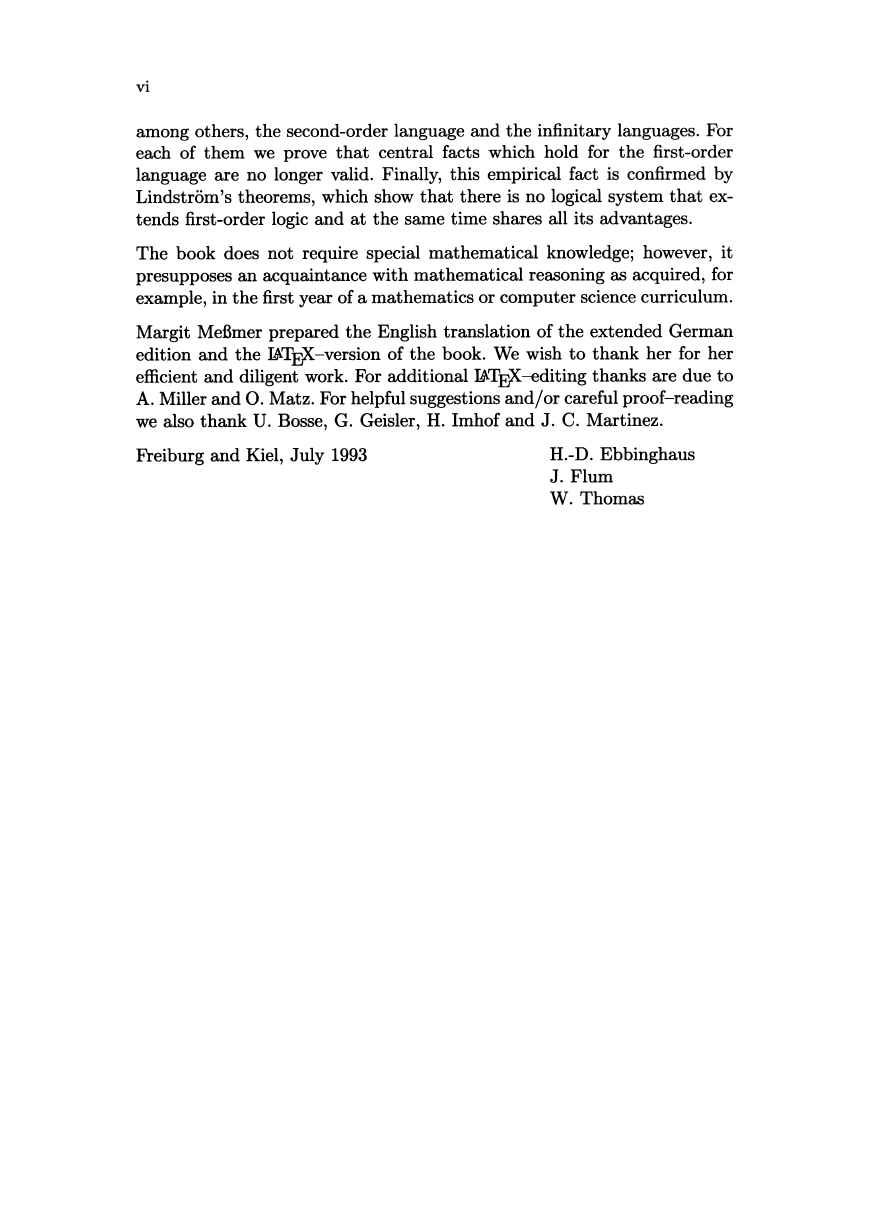
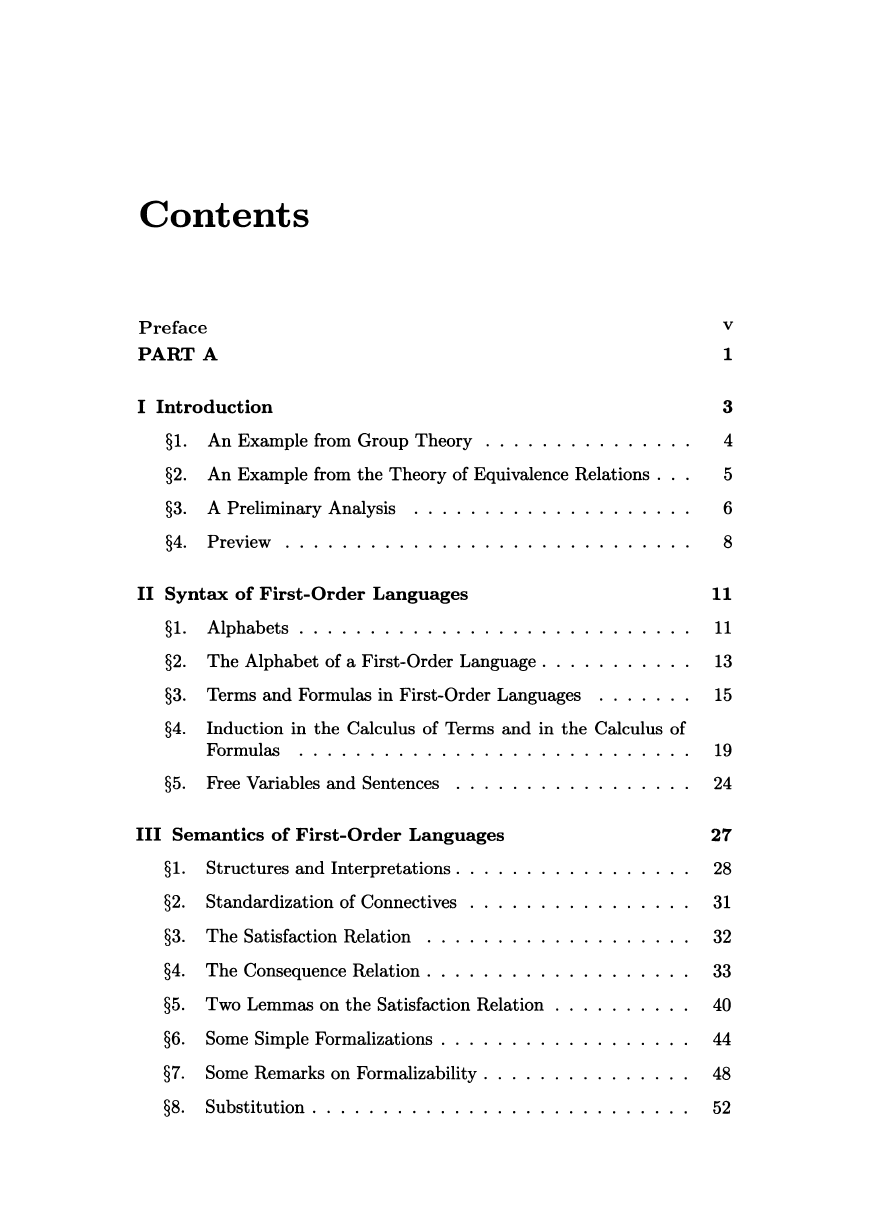
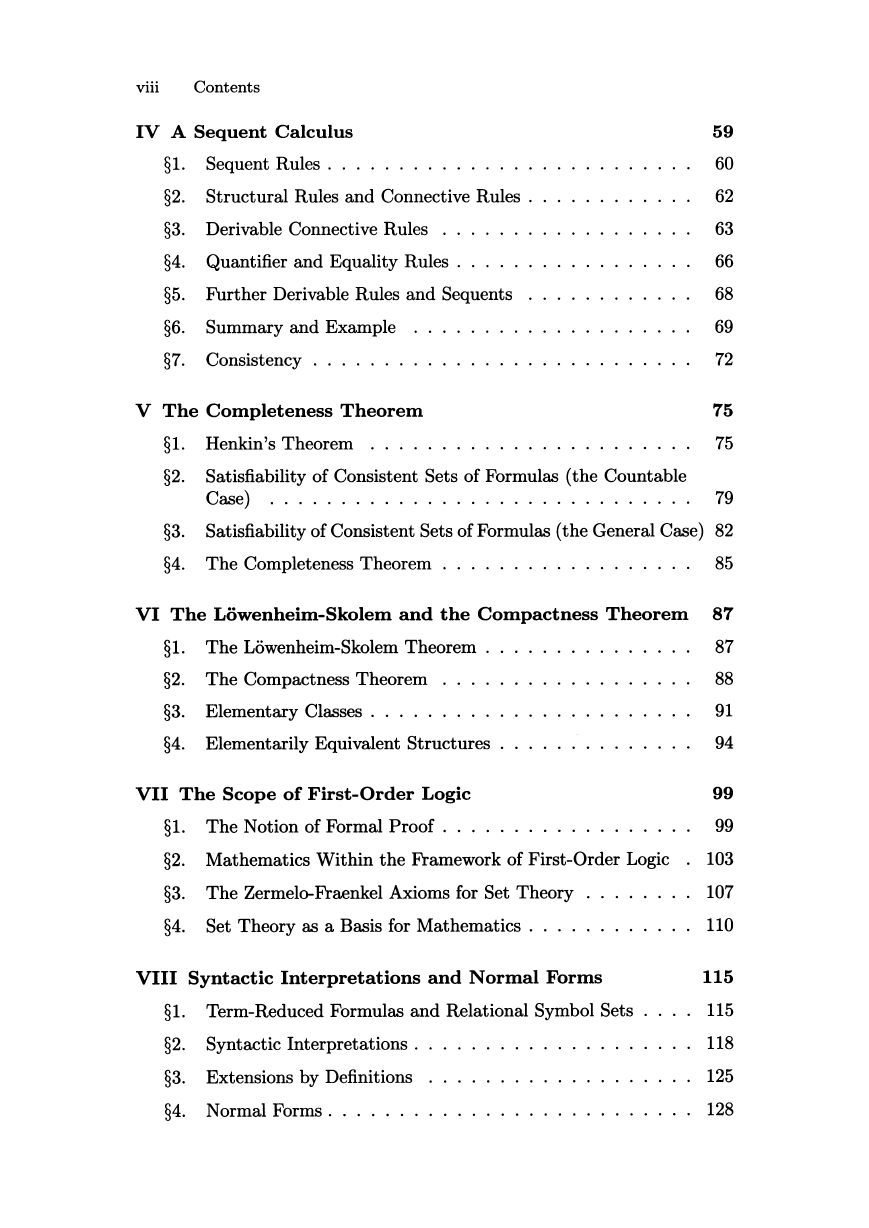
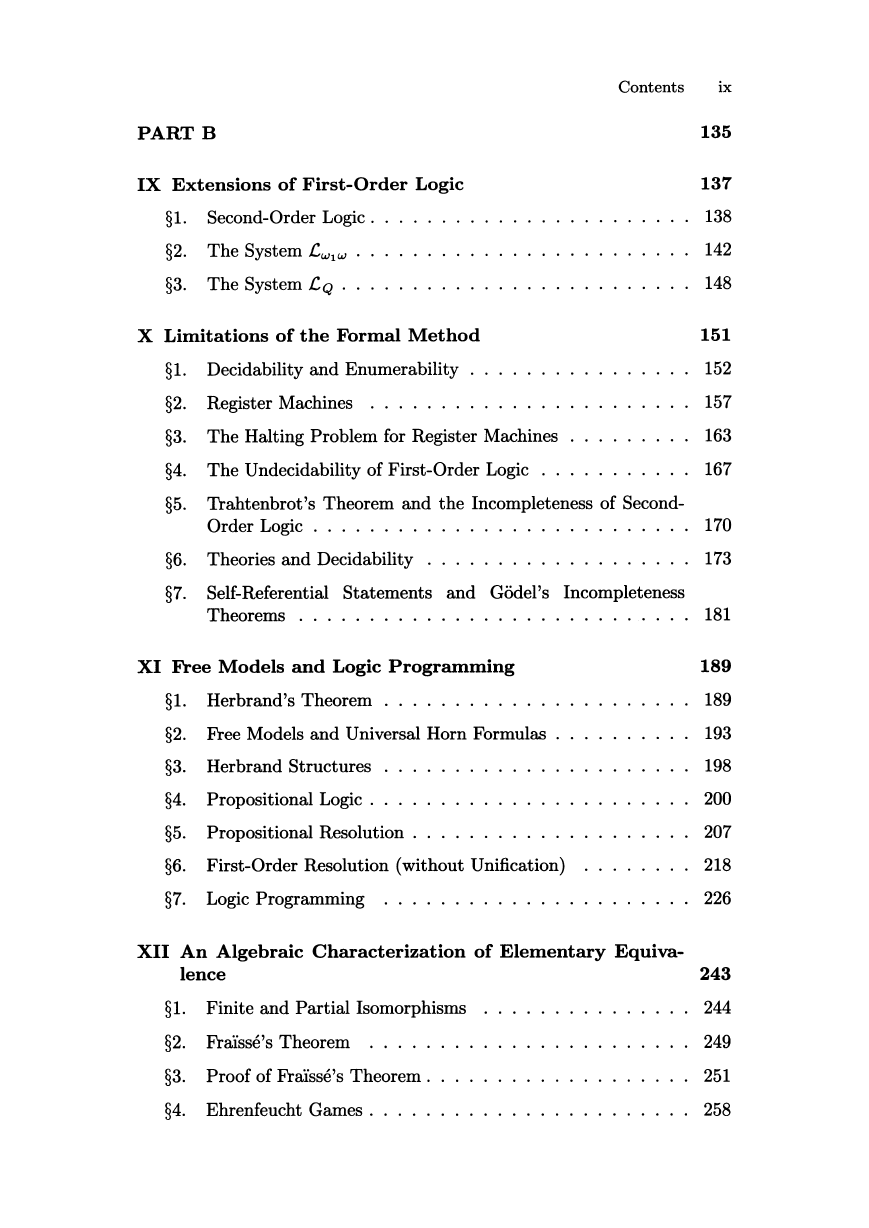








 2023年江西萍乡中考道德与法治真题及答案.doc
2023年江西萍乡中考道德与法治真题及答案.doc 2012年重庆南川中考生物真题及答案.doc
2012年重庆南川中考生物真题及答案.doc 2013年江西师范大学地理学综合及文艺理论基础考研真题.doc
2013年江西师范大学地理学综合及文艺理论基础考研真题.doc 2020年四川甘孜小升初语文真题及答案I卷.doc
2020年四川甘孜小升初语文真题及答案I卷.doc 2020年注册岩土工程师专业基础考试真题及答案.doc
2020年注册岩土工程师专业基础考试真题及答案.doc 2023-2024学年福建省厦门市九年级上学期数学月考试题及答案.doc
2023-2024学年福建省厦门市九年级上学期数学月考试题及答案.doc 2021-2022学年辽宁省沈阳市大东区九年级上学期语文期末试题及答案.doc
2021-2022学年辽宁省沈阳市大东区九年级上学期语文期末试题及答案.doc 2022-2023学年北京东城区初三第一学期物理期末试卷及答案.doc
2022-2023学年北京东城区初三第一学期物理期末试卷及答案.doc 2018上半年江西教师资格初中地理学科知识与教学能力真题及答案.doc
2018上半年江西教师资格初中地理学科知识与教学能力真题及答案.doc 2012年河北国家公务员申论考试真题及答案-省级.doc
2012年河北国家公务员申论考试真题及答案-省级.doc 2020-2021学年江苏省扬州市江都区邵樊片九年级上学期数学第一次质量检测试题及答案.doc
2020-2021学年江苏省扬州市江都区邵樊片九年级上学期数学第一次质量检测试题及答案.doc 2022下半年黑龙江教师资格证中学综合素质真题及答案.doc
2022下半年黑龙江教师资格证中学综合素质真题及答案.doc